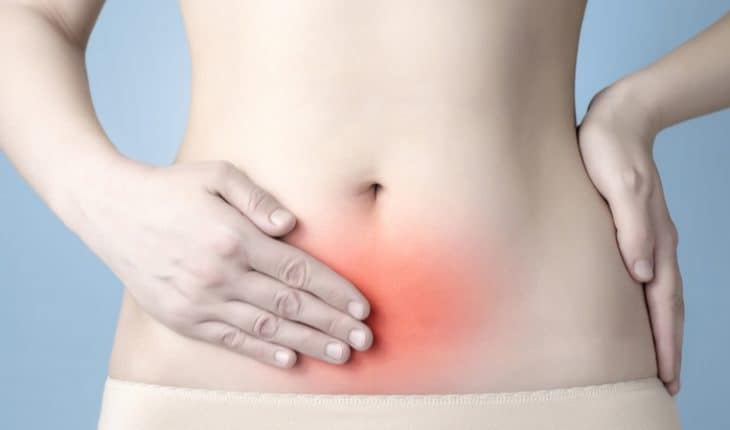Half of the UK isn’t aware of the life-changing condition that’s as a common in women and those assigned female at birth as diabetes and asthma.
- Endometriosis affects 1.5 million women and those assigned female at birth in the UK, similar to the number affected by diabetes or asthma
- 54% of people do not know what endometriosis is, increasing to 74% of men
- 62% of women between the age of 16-24 don’t know what endometriosis is
- 45% of women are unable to name any symptoms of the condition
- Endometriosis UK calls for a step change in public attitudes to women’s health
New research from Endometriosis UK reveals the shockingly low levels of public awareness for the potentially life-changing condition, endometriosis. Despite affecting 1 in 10 women from puberty to menopause – 1.5 million in the UK – the majority (54%) of people do not know what endometriosis is.
Endometriosis is a long-term condition which sees tissue similar to the lining of the womb grow in other parts of the body, generally on organs in the pelvic cavity such as the ovaries, fallopian tubes and bowel. It can be painful and may have a devastating impact on a woman’s education, personal and professional relationships, mental health, and quality of life.
The findings, published to mark the launch of Endometriosis Awareness Month in March, show widespread lack of awareness for the condition and for its symptoms. 56% of people cannot name any symptoms of endometriosis. Of those that do know endometriosis is a gynaecological condition, 35% cannot name any symptoms.
Awareness is higher among women but still alarmingly low, considering it affects 1 in 10 from puberty to menopause, although the effects may be felt for life. 33% of women do not know what endometriosis is and 45% cannot name any of its symptoms. In contrast, 74% of men do not know what endometriosis is.
Endometriosis can occur from puberty to menopause, but awareness among young women is alarmingly low. 62% of women age 16-24 do not know what endometriosis is and 67% cannot name any symptoms. Endometriosis UK says that lack of education in schools is contributing to societal taboos in talking about female health; delaying access to treatment; and increasing diagnosis time which averages at a shocking 7.5 years.
This lack of awareness is also contributing to those suffering not receiving the right care at the right time – and these statistics must be a wake-up call to society and the NHS that endometriosis can no longer afford to be ignored. Endometriosis costs the economy £8.2 billion each year in treatment, healthcare costs and loss of work, and yet lack of research means we don’t even know what causes it, and the only definitive way to diagnosis endometriosis is through surgery. Many workplaces do not recognise the condition.
This March, Endometriosis UK, is calling for the public, healthcare professionals, policymakers, workplaces, and charities to come together to raise public awareness of the condition, its symptoms, and the impact it has on people’s lives. Throughout this month, the charity is encouraging change by asking those affected by endometriosis to contribute to the APPG on Endometriosis’s survey as part of their ongoing inquiry.
Emma Cox, Chief Executive of Endometriosis UK, said:
“These new statistics show endometriosis cannot afford to be ignored any longer. We need to see stark changes to the system to ensure that all those with endometriosis are able to access the right care at the right time – not many years, sometimes decades, after they first start suffering from symptoms. Society and the NHS must wake-up and understand the devastating impact the condition can have.
“Despite affecting 10% of females from puberty to menopause, endometriosis remains widely unknown, a hidden disease. Alarmingly, awareness is much lower in younger women, where over half do not know what endometriosis is. We all have a role to play in turning this around and taking menstrual and pelvic pain seriously; whether supporting people in the workplace to manage their condition alongside their career; healthcare practitioners supporting diagnosis; teaching menstrual wellbeing in all schools across the UK; or simply raising awareness of the symptoms so that people know if what they are experiencing is “normal” and it is no longer a taboo subject.
This March, important conversations must be had so we can live in a world where menstrual health issues, including endometriosis, are recognised and understood”.
Case study:
Shaunee Williams, a 23 year old midwife from Sheltland said: “It’s shocking that so few young people have heard of endometriosis. From a young age, I normalised the chronic pain I was enduring because I wasn’t taught any different. I was led to believe that painful periods were just a normal part of growing up and being a woman. I missed out on my education because like many others, endometriosis was something I had never heard of. This awareness month – I want everyone, regardless of gender, to understand what is and isn’t normal when it comes to the menstrual cycle. Menstrual health conditions impact not just the sufferer, but those around them too”.
Symptoms of endometriosis include:
- Pelvic pain
- Period pain that stops you doing normal activities
- Pain during or after sex
- Painful bowel movements
- Pain when urinating
- Difficulty getting pregnant
- Fatigue
- Women with endometriosis may also have heavy periods.
- New lipid-based pathway discovered as key to memory formation - 25th June 2025
- Crucial link could explain how Alzheimer’s takes hold - 25th June 2025
- Understanding Your Mind Can Improve Daily Life - 25th June 2025






